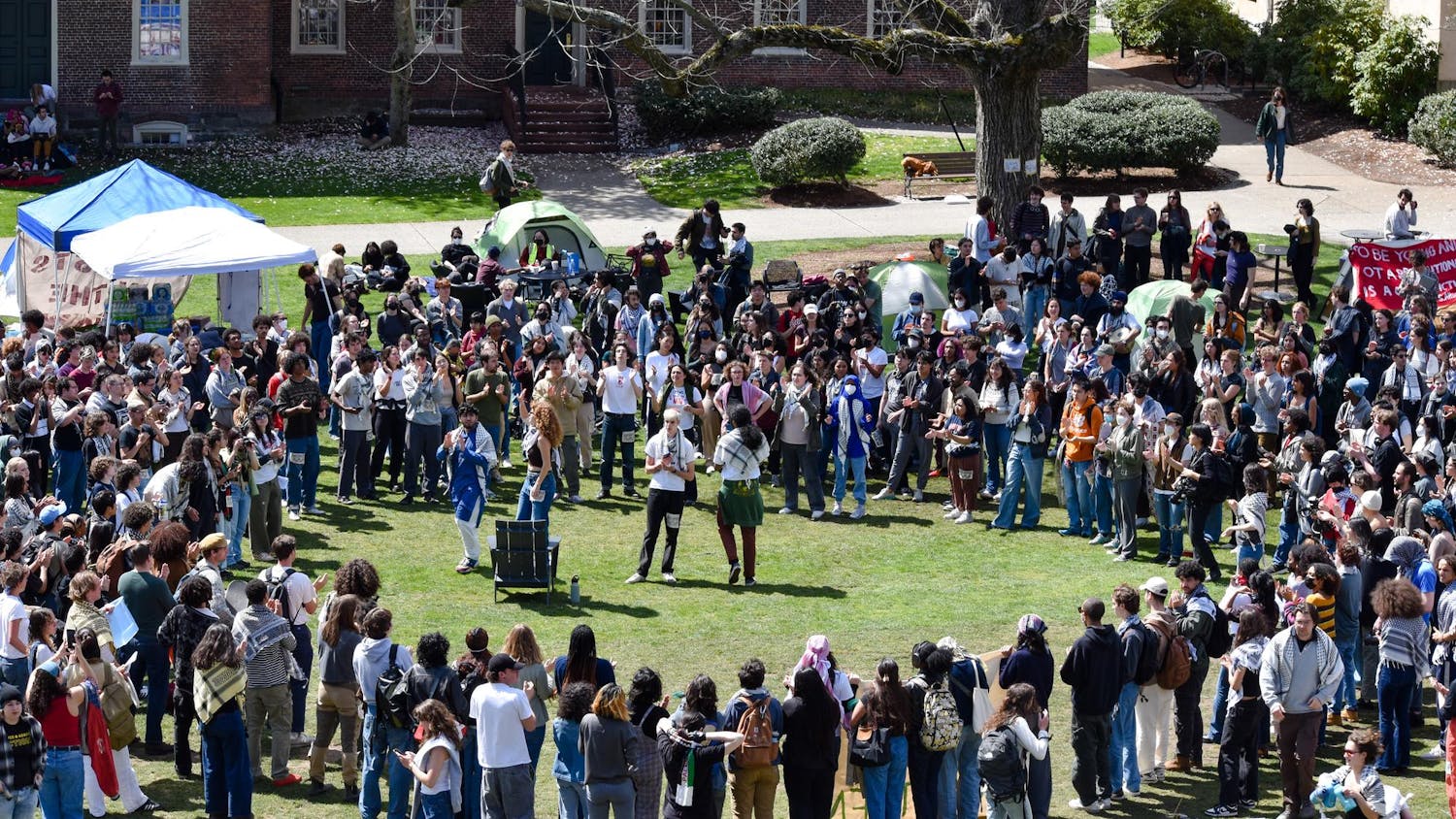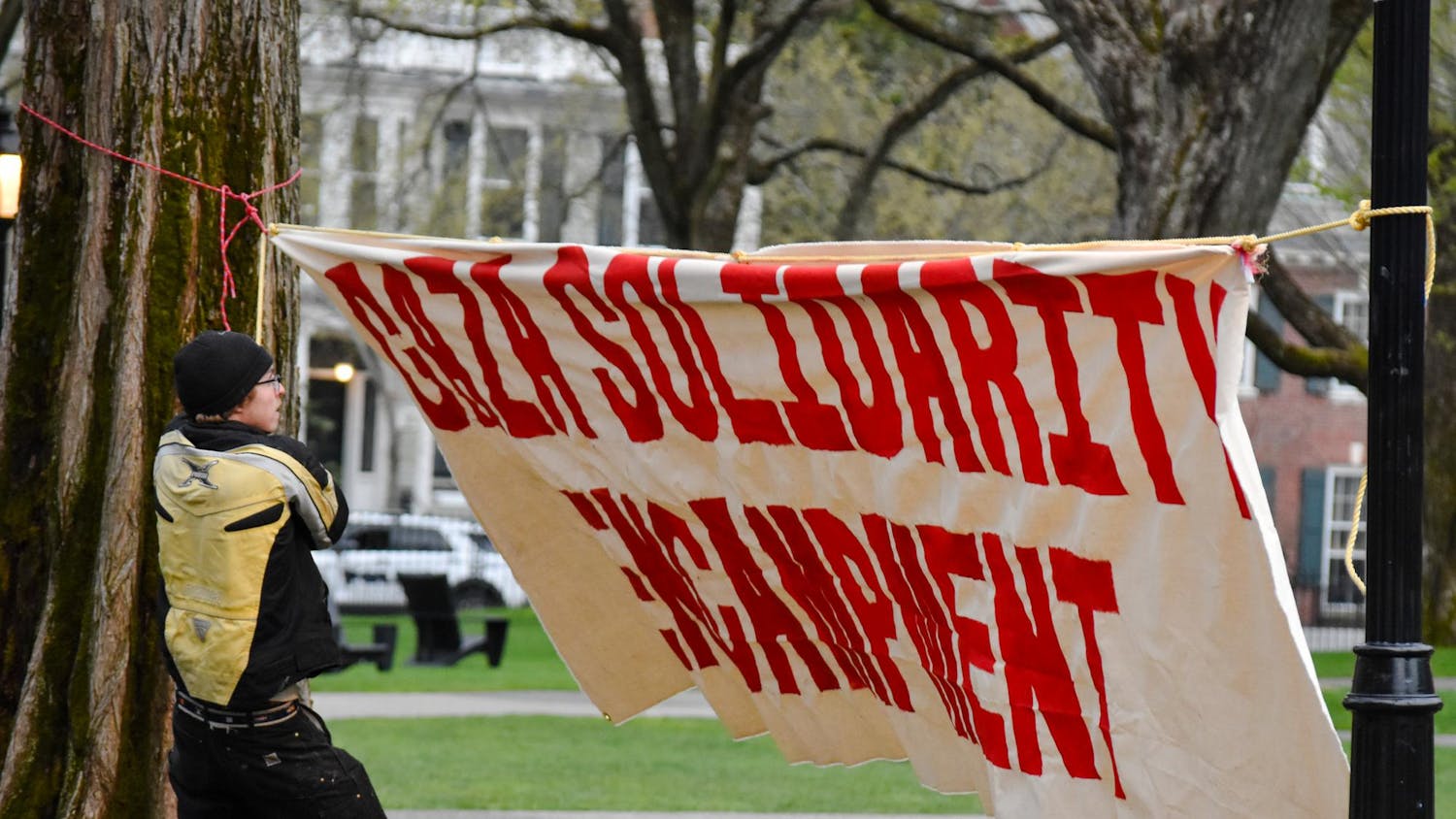Sanjay Gupta came to campus yesterday to speak about the relationship between media and medicine. After his lecture, he sat down with The Herald.
The Herald: What do you hope students took away from your talk today?
I think it's my own life experience, as someone who wasn't entirely sure where their life was going to lead, and when it was going in different directions. And I think that that story can sometimes be helpful when people are trying to make their own decisions in life about what they want to do.
How did you end up choosing to combine medicine and journalism?
You know, it's interesting. Because I really thought that when I started, I didn't know what I'd be doing exactly. I thought I'd be covering, as I said, the health care discussions of George W. Bush's presidency. It really was a pretty unusual thing because of what happened in the world at that time. With the attacks of 9/11, and then I essentially was going to Afghanistan and all of that. I think I really enjoyed it and thought it was valuable to do, so I thought it was a worthwhile thing to incorporate in my life. So that was really it. I mean, I never trained as a journalist. If anything, I was a writer, and it was mainly policy writing, you know speech-writing. It was never journalism, per se. So it's a pretty atypical path.
Do you find there to be any benefits or drawbacks to combining fields that are so different?
Well, you know, I think that if you're truly interested in the field, there may be more in common than you think or than you realize. I mean, you get the sense that people have interests in wildly different things — like what is it about those things that tie them together in the person's mind? And so for me, that's where I focus a lot of my attention. I think medicine and journalism are actually very similar. We spend a lot of time educating patients as doctors, and I do a lot of the same thing as a medical reporter. It's along the same spectrum of providing knowledge.
When you first began medical reporting, did you ever have trouble explaining that to friends or family — what exactly you were doing?
That's a good question, I'm trying to think if I did. I don't think that I ever really did. I think everyone always sort of saw me as — especially since I'd already worked at the White House — I think people already saw me as kind of unconventional just from pure clinical medicine. I think that people sort of saw this in some ways as an extension of what I'd already been doing.
I think for the most part, it sort of made sense to my close friends and family.
What ultimately led you to decide not to be surgeon general?
It was a tough decision. I think that ultimately it was timing more than anything else. I mean, I obviously had done public service before, when I worked at the White House. I did not think that to be in my early 40s no longer with the ability to practice surgery was something I wanted to be in. I like practicing surgery, and if I'm away from it for four years — especially eight years — you're probably not going back to neurosurgery. That's what I'd been told. And I didn't think it was the right time for me to do that. And like I said, most of the other surgeon generals were much older — already retired. As an internist or infectious disease doctor, perhaps. I think as a neurosurgeon, it would be tough.
There are a lot of changes you see in broadcast today — a lot of the talk formats and a lot more opinion-based journalism. As someone who is in the media but not trained as a journalist, what do you think of such changes? Do they affect how you report?
I think the biggest thing I would say is you know, I touched on this in the speech, but I think the biggest problem for me with opinion-based journalism is not so much that you can't have informed opinions out there. In fact, I think it's probably less honest to simply assume that nobody has any opinions at all. I think what's troubling is that there's not always two viewpoints on them. There are sometimes just right and wrong, and I think that if that's the case, you've got to call it. You've got to, or it gets confusing to viewers, and it's not helpful. It possibly can damage them if you misrepresent things as equal when one is just simply not correct.
What are your thoughts about what would make an effective health care system?
Well, you know, I talked about (it) in the speech. I think that ultimately there has to be two goals. One is that I think that you've got to make sure people actually have access to the health care that's available to certain segments of the population, and I think that that's improving. It's not like countries that have government-run health care systems, but I think it will increase when we have it. But I think the larger issue — and the one that I think often gets missed in this — is that we're not a very healthy country. We like to compare ourselves to places like France, but in France, they're a lot healthier than we are. They're healthier, they have more individual responsibility, and I think that simply insuring people for health care, while very important, can't be the ultimate goal. I think what we want is a healthier America, one where we don't have as much disease as we've been sort of dealing with in the past several decades.
I hear you used to sing in the glee club in college. Will we ever hear you sing on the air?
(Laughs) Probably not. College was a really long time ago. Some things you're going to leave in the past.
What advice would you give to Brown students?
I sort of was saying this in response to one of the questions. But I think, you know, obviously having a specific dream I think is really important, but I think you have to be comfortable with failure, as I said. Failure in the sense that you may not always get all the dreams that you want, but enjoy the process of dreaming and enjoy the process of going after those goals.




